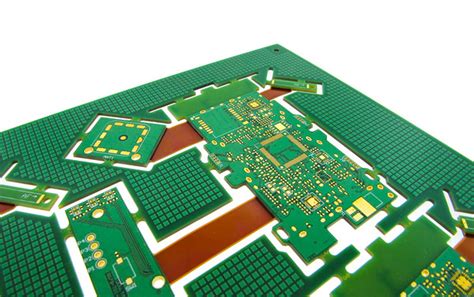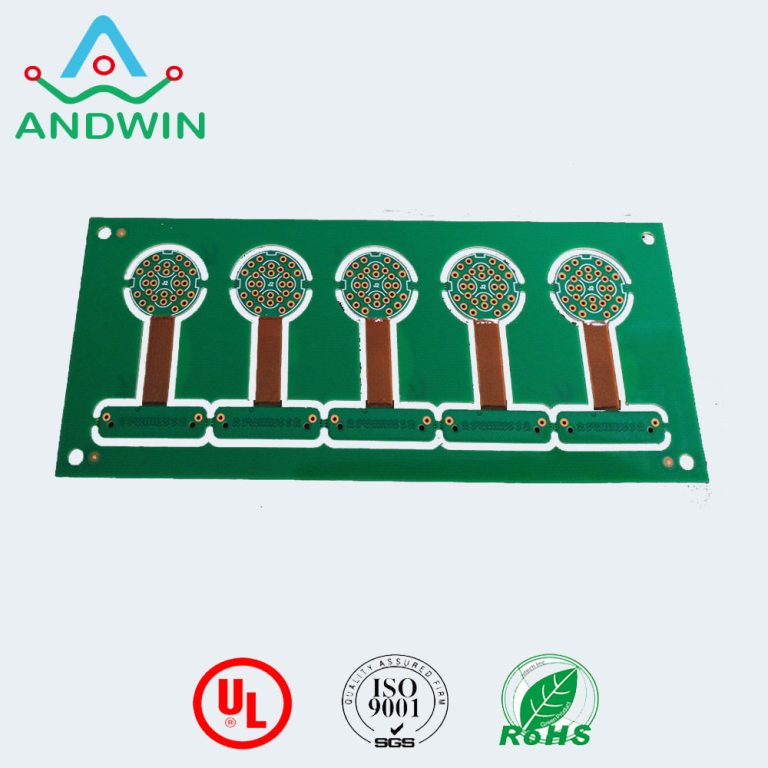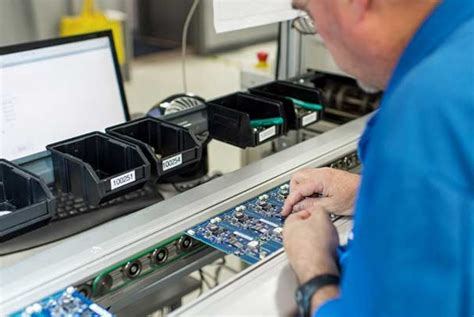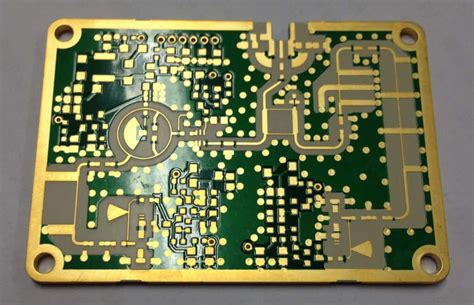The Ultimate Guide to Choosing a Custom PCB Maker for Your Next Project
Key Takeaways
Choosing the right custom PCB maker for your next project can significantly impact the success of your PCB manufacturing venture. When evaluating potential partners, prioritize key factors such as turnaround times, quality standards, and material options. Additionally, understanding the intricacies of pcb manufacturing cost helps in balancing expenses without compromising on quality. Look for pcb manufacturing companies that offer advanced manufacturing technologies and possess relevant ISO certifications, ensuring both precision and efficiency in production. By carefully considering these aspects, you equip yourself with the knowledge to make informed decisions, ultimately enhancing the performance and reliability of your electronic designs.
Introduction to Custom PCB Makers
When embarking on your next project, choosing the right custom PCB maker is crucial to ensure success. These specialized companies bring your electronic designs to life through precise pcb manufacturing processes. Whether you are a hobbyist or a professional, understanding the role of pcb manufacturing companies will help you navigate the complexities of design and production.
One of the first things to understand is that not all PCB makers are created equal. Various factors such as pcb manufacturing cost, quality standards, and production capabilities play significant roles in determining which provider is right for your needs. Additionally, modern advancements in technology have made it possible for these companies to offer a range of materials and manufacturing techniques suited for different applications.
Cost considerations are also paramount. Balancing quality with affordability can be a challenge, but knowing what drives pcb manufacturing cost, from material selection to turnaround times, can provide valuable insights.
Emphasizing quality standards, seasoned pcb manufacturing business professionals often highlight the importance of ISO certifications and other compliance protocols that ensure high standards in production. This ensures that every component meets precise specs and operates reliably.
To gain more insights about selecting a trusted PCB partner and explore options tailored to your project’s requirements, you can visit Andwin PCBA.
By equipping yourself with this foundational knowledge, you’ll be better prepared to make informed decisions when selecting a custom PCB maker that aligns with your project goals and expectations.
Key Factors in Choosing a Custom PCB Maker
When selecting the ideal custom PCB maker for your next project, several essential criteria come into play. It’s crucial to evaluate the turnaround times and efficiency of the potential PCB manufacturing companies. A reliable partner should demonstrate a track record of meeting deadlines without compromising on quality.
Quality standards are paramount in ensuring your project remains free from defects. Look for PCB manufacturers that adhere to stringent ISO certifications, as these standards indicate a commitment to high-quality production processes. The materials used in PCB production can dramatically impact your design’s performance and longevity. Therefore, it’s important to discuss with your prospective maker about the availability and suitability of various material options for your specific needs.
“Choosing a custom PCB maker with advanced manufacturing technologies can significantly enhance production precision and efficiency.”
Additionally, balancing cost considerations with quality is fundamental in the selection process. The lowest quote is not always the best choice if it compromises the integrity of your design. Transparency regarding pcb manufacturing cost is essential, ensuring there are no hidden charges that could blow your budget.
Scalability is another crucial factor; a good partner should offer seamless transitions from prototyping to mass production, helping you scale up efficiently as demand grows. This requires not only technical capability but also robust logistical support.
In summary, selecting the right PCB manufacturing business involves meticulous evaluation of turnaround times, quality standards, material compatibility, cost efficiency, and scalability. By focusing on these key factors, you can make an informed decision that will enhance both efficiency and precision in your electronic designs.
Evaluating Turnaround Times and Efficiency
When it comes to pcb manufacturing, quick and dependable turnaround times are crucial for the success of your project. PCB manufacturing companies that can guarantee rapid delivery without compromising on quality are highly valuable. You should assess their production schedules and lead times to ensure they align with your project timeline. Efficient pcb manufacturing business practices often involve streamlined processes, advanced machinery, and skilled technicians.
Consider how quickly a manufacturer can transition from the design phase to actual production. Faster prototype delivery can significantly shorten your development cycle, so look at their track record for timely deliveries. Efficient operations not only cut down waiting periods but also help in reducing the overall pcb manufacturing cost. Make sure to choose a partner well-versed in handling both urgent small-scale orders and large volume requests efficiently, providing flexibility as your needs evolve.
Keep an eye out for companies that offer transparent tracking of your order status, as this adds an extra layer of reliability. With optimized turnaround times and high efficiency, you can confidently move through development stages without delays, ensuring you meet market demands with speed and precision.
Quality Standards and Certifications to Look For
When it comes to selecting the right pcb manufacturing partner for your project, ensuring they meet high-quality standards and possess necessary certifications is crucial. Look for pcb manufacturing companies that adhere to internationally recognized standards such as ISO 9001 for quality management and IPC-A-600 for acceptability of printed boards. These certifications indicate that the company follows stringent quality controls, ensuring the reliability and durability of your PCB. Additionally, you should inquire about their internal audit processes and any additional certifications like UL (Underwriters Laboratories) certification, which ensures the safety standards of electrical products. By prioritizing these quality benchmarks, you can mitigate risks associated with poor manufacturing practices and avoid unnecessary pcb manufacturing costs in reworks or failures. Establishing a relationship with a pcb manufacturing business that maintains high-quality standards will ultimately safeguard the performance and longevity of your electronic designs.
Understanding Material Options and Their Implications
When delving into the world of PCB manufacturing, understanding the variety of material options available is crucial for achieving your project’s goals. The choice of material directly affects the performance, durability, and overall cost of your custom PCB. Common materials include FR4, which is highly favored for its excellent balance between performance and cost, making it a staple in the PCB manufacturing business. For applications requiring higher thermal stability and mechanical strength, materials like polyimide or ceramic substrates might be more appropriate. These materials often come at a higher PCB manufacturing cost, but they can offer significant advantages in rugged or high-heat environments.
Don’t overlook materials like Rogers or Teflon for high-frequency applications, as they provide low dielectric loss which is vital for signal integrity. The material selection can have serious implications on the overall manufacturing process, impacting everything from drilling parameters to soldering profiles. Understanding these nuances will help you communicate more effectively with PCB manufacturing companies to ensure your specific needs are met efficiently.
Additionally, considering environmentally friendly options and compliance with standards like RoHS can be an important factor depending on your project requirements. Choices made here can also impact your branding and market acceptance if you’re entering a consumer market sensitive to eco-friendly products.
By equipping yourself with knowledge about different materials and their specific applications, you’ll be well-positioned to make informed decisions that balance performance requirements with budgeting constraints in PCB manufacturing.
Advanced Manufacturing Technologies in PCB Production
When selecting a custom PCB maker, it is crucial to consider the advanced manufacturing technologies they employ. Cutting-edge techniques such as automated optical inspection (AOI), laser drilling, and surface mount technology (SMT) significantly impact the overall quality and reliability of your printed circuit boards. PCB manufacturing companies that invest in these advanced technologies can promise higher precision and consistency across batches, which is essential for both prototypes and large-scale production. Moreover, these methodologies often streamline the PCB manufacturing process, reducing lead times and minimizing errors.
Another notable technology is microvia technology, which enhances density without compromising performance. Make sure the custom PCB maker you choose is familiar with and implements these technologies to remain competitive in the ever-evolving electronics industry. The integration of high-precision equipment allows for the use of a variety of materials including high-frequency laminates and flexible substrates, giving you greater design flexibility.
Always inquire about the specific technologies that potential PCB manufacturing companies utilize. Their adoption of advancements such as robotic assembly lines or real-time quality monitoring can lead to reduced PCB manufacturing cost while maintaining top-tier standards. Staying informed about these capabilities will enable your project to leverage the best of modern technology, ensuring that your designs are brought to life with utmost efficiency and precision.
Selecting a partner who utilizes advanced manufacturing technologies is not merely about keeping up with trends; it directly influences your project’s success by elevating product performance and durability. Therefore, make sure your chosen PCB manufacturer continuously updates their practices in line with industry innovations, so your end product represents cutting-edge technology. By focusing on advanced methods in pcb production within your pcb manufacturing business, you set yourself up for superior outcomes both in function and form.
Balancing Cost and Quality in Your PCB Selection
When selecting a custom PCB maker, balancing cost and quality is crucial to ensuring the success of your project. While affordable prices may be tempting, it’s imperative to remember that cutting corners on quality can lead to significant issues down the line. Assess the pcb manufacturing cost by considering not only the base price but also additional factors like material lifespan and manufacturing precision. Reputable pcb manufacturing companies often provide a transparent breakdown of costs, allowing you to understand what you’re paying for.
Furthermore, evaluating pcb manufacturing businesses that offer various material options can help you find the best balance between cost and performance. High-quality materials might cost more initially but often offer superior durability and better performance, which can be more cost-effective in the long run.
Additionally, advanced technologies in pcb manufacturing can influence both the price and quality of your boards. Techniques like high-density interconnect (HDI) technology or multi-layer stacking might increase upfront costs but provide significant advantages in terms of performance and efficiency.
Ultimately, your goal should be to find a custom PCB maker that delivers high-quality products at a competitive price point. Look for companies that adhere to strict quality standards and have industry certifications, ensuring that you receive reliable products that meet your specific needs without breaking the bank. By prioritizing both cost efficiency and high-quality standards, you position yourself for success in your next innovative project.
Scaling Up: From Prototyping to Mass Production
Transitioning from prototyping to mass production is a crucial step in your project’s lifecycle. During this stage, choosing the right pcb manufacturing partner becomes immensely significant. You need to ensure that the pcb manufacturing companies you’re considering can scale their operations effectively without compromising on quality and efficiency. To achieve this, look for companies with proven track records in handling large-volume orders and offers scalable solutions.
Evaluating the capabilities of a pcb manufacturing business entails a close examination of their production facilities and technological prowess. Advanced features such as automated inspection systems and high-speed pick-and-place machines can dramatically influence both the speed and accuracy of your production run. This equips you to meet demanding timelines without inflating the overall pcb manufacturing cost.
Additionally, it’s vital to scrutinize the material quality and availability across different production scales. What works well for small prototypes may not be cost-effective or available in bulk quantities. Ensure that your chosen manufacturer can provide consistent material options that meet industry standards, maintaining durability and performance from the first unit to the thousandth.
In summary, when scaling up from prototyping to mass production, partner with pcb manufacturing companies that offer robust capabilities and flexible solutions to accommodate evolving project demands. This approach guarantees that your transition is seamless, efficient, and cost-effective, laying a solid foundation for widespread success in your electronic designs.
Conclusion
Choosing the right custom PCB maker is crucial for the success of your electronic project. By considering factors like turnaround times, quality standards, and material options, you can ensure that your project progresses smoothly from prototyping to mass production. Evaluating pcb manufacturing companies based on their certifications and advanced manufacturing technologies will help you find a partner that guarantees both precision and efficiency. Additionally, balancing the pcb manufacturing cost with quality requirements is essential to keep your project on budget while not compromising on performance. Understanding these core elements will empower you to make informed decisions and elevate your electronic designs, ensuring a seamless collaboration with a trusted pcb manufacturing business.
Frequently Asked Questions
When selecting a custom PCB maker for your project, it’s natural to have a few questions. Here are answers to some of the most common inquiries:
What is the typical turnaround time for custom PCB orders?
Turnaround times can vary significantly among PCB manufacturing companies. It’s crucial to discuss your timeline needs with potential PCB manufacturing companies to ensure they can meet your deadlines. Typical turnaround times range from a few days for rapid prototypes to several weeks for more complex designs.How do I assess the quality of a PCB manufacturer?
Quality is paramount in PCB manufacturing. Look for manufacturers with certifications like ISO9001, which indicates adherence to international quality standards. Additionally, review customer testimonials and case studies to gauge the manufacturer’s reputation in the PCB manufacturing business.What factors influence the cost of PCB manufacturing?
Several factors affect the PCB manufacturing cost, including board complexity, materials used, and production volume. It’s essential to obtain detailed quotes from multiple PCB manufacturing companies to compare costs effectively.What materials are available for PCB construction, and how do they impact performance?
Common materials include FR4, aluminum, and flexible substrates like polyimide. Each material has distinct advantages and limitations that can affect thermal performance, flexibility, and durability.What advanced technologies should I look out for in a custom PCB maker?
Modern PCB manufacturing leverages technologies like surface mount technology (SMT), multi-layer PCBs, and advanced inspection techniques like X-ray inspection and automated optical inspection (AOI) to enhance precision and reliability.
Need Expert Assistance?
For expert advice on selecting the right custom PCB maker tailored to your needs, please click here.







